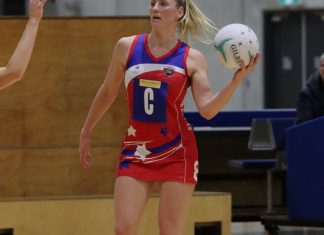By Benjamin Millar and Goya Dmytryshchak
Panicked buyers are leaving supermarket shelves bare in Melbourne’s west as coronavirus fears spread.
And a leading doctor reports that Australia was suffering from not having a co-ordinated approach among GPs.
By Friday, the COVID-19 virus had reached 80 countries with about 100,000 known cases and almost 3400 confirmed deaths.
The number of diagnosed cases in Australia has reached 60, including 10 people in Victoria. Two deaths have been recorded.
Panic-buying has led to nationwide shortages of household staples including toilet paper, hand sanitiser, pasta and flour and key items are in short supply in suburbs across Melbourne’s west, despite supermarkets introducing buying limits.
Laverton North’s Encore Tissue, which makes icare toilet paper, said the buying hysteria has fuelled demand but is likely to be a short-term “bubble”.
“I don’t understand it, it’s just crazy,” director David Holckner said.
“Our contacts overseas have informed us that similar behaviour is occurring in other countries.
“In Italy, it’s not toilet paper – it’s pasta, coffee and oil.”
He said retail contacts had reported sales had increased fourfold in products such as pasta, flour, rice and anything with a long shelf life.
“Therefore the demand through the whole system is in that order of magnitude but it’s just a bubble, it’s a blip, and it will settle down after the panic buying stops,” Mr Holckner said.
Yarraville-based food charity Foodbank Australia issued a plea to people to avoid panic buying large quantities and to only purchase what they needed to ver their needs for up to a fortnight.
“In the past few days we’ve seen images of empty shelves across the nation, yet our most vulnerable community members – pensioners, residents in retirement homes and people with disabilities – are turning up to their local shops on their weekly shopping trip, only to face bare shelves and head home empty-handed.”
The Victorian Council of Social Service echoed the call, noting that people on low incomes aren’t able to panic buy and stockpile household goods.
“Runs on essential items hurt people in poverty,” it said in a statement.
“So please stop and think about others before you empty out the supermarket shelves.”
Altona North GP Mukesh Haikerwal said Australia was suffering from not having a co-ordinated approach.
“We’re the only OECD country that does not have a centre for disease control set up. All these efforts are not harmonised and we’re not leveraging everybody’s expertise and doing one thing well, once,” said the former Australian Medical Association president and World Medical Association council chair.
“Everyone’s feeling disempowered and we haven’t got a joined-up in our way of doing things.
“In our area, you’ll find different practices will do things differently and I think that leads to confusion and difficulty for all.
“If you’ve got to go to the practice, will you be seen at the practice, be sitting in a carpark or be sent to another practice or be sent to hospital?”
Related: Coronavirus: ‘We’re not going to face the bullet’








